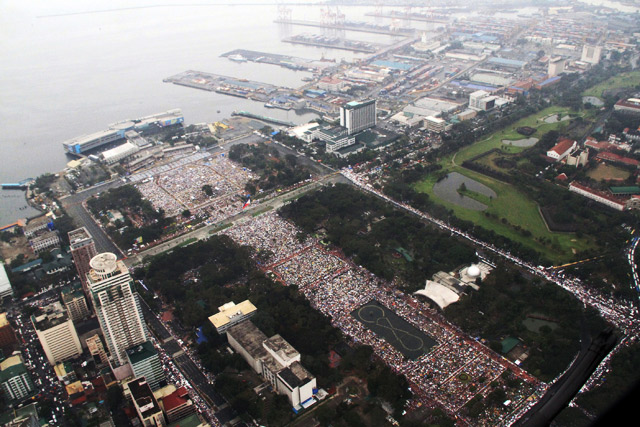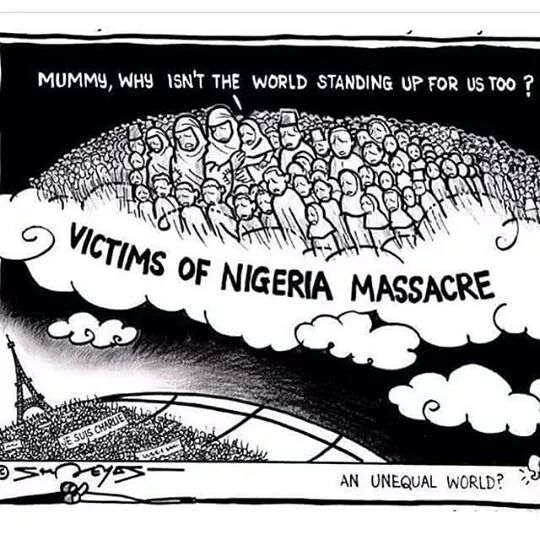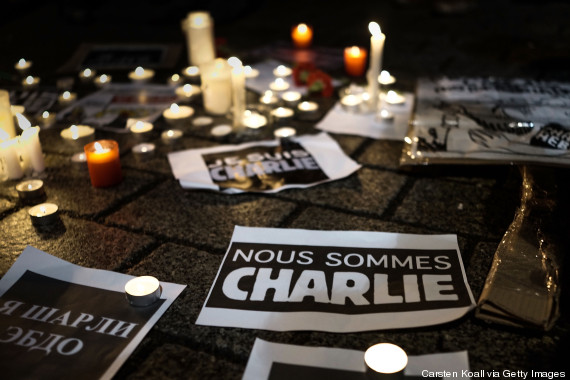This is the text of a sermon preached by the Revd Pauline Shelton on Sunday 18th January 2015 at St Martin's Church in Walsall on re-imaginging communion. The texts that were preached on were Isaiah
55:1—13 & John 6:1—14
There’s no such thing as a free lunch, they say. But is that
right? Is it really?
The journey which brings me here this morning started nearly
20 years ago, when I had to do an essay on John’s Gospel as part of my
ordination training. We’d been told that John is the most philosophical of the
Gospels, strong on ideas, symbols, theologies. But when I sat and read it
straight through, the thing that struck me most was how much food and drink it
contains. Stories of wine at weddings, picnics for huge crowds, fresh water
from a deep well, barbecues on the beach, of Jesus sharing meals with friends,
Jesus saying ‘I am the bread of life . . . I will give you living water’.
So that’s what I wrote about. And I’ve gone on writing and
talking about it ever since. It’s changed the way I see and experience both
what we do at communion in church, and how I understand mission as learning to
relate to others over food. And that’s what I want to share with you now.
Because my studies took me, 18 months ago, to a church which I think has got it
right: St Gregory of Nyssa, a remarkable Anglican church in San Francisco,
which has helped me to see how we might do things differently.
So let’s have a look at how we ‘do’ communion. In John’s
Gospel, Jesus’s teaching about communion doesn’t take place at the Last Supper,
as in the other three Gospels. Instead, it happens in a long conversation the
day after this miraculous feeding of the crowd. The Western Church has
developed much of its eucharistic theology and practice around its
understanding of what happened at the Last Supper – but how different does it
look if we take John as our model for understanding communion? If we look not
just at one meal, but at the many meals Jesus shared in the Gospel stories?
There are three main differences: Who is invited; What is
eaten; and the sharing with others.
1 Who
is invited
At God’s picnic, all are fed. Absolutely everyone. And Jesus
is following OT practice here. In our reading from Isaiah the prophet imitates
the Babylonian street vendors: ‘Ho, everyone who thirsts, come to the waters!’
In John, the miraculous feeding happens at Passover time – the holiest Jewish
feast which is a mark of religious identity and separateness. In that context,
Jesus sees a great crowd coming towards him. He’s on the Gentile side of the
lake, so we can be sure it was pretty mixed.
And remember that in Jesus’ day, devout Jews demonstrated
their holiness by the people they would and would not share food with. Your
table companions showed how close to God you were. So women and men ate
separately, as did people of different social classes and different sects
within Judaism.
And Jesus . . . Jesus demonstrates what true holiness is,
what closeness to God really looks like. He feeds this huge, ragbag crowd.
Clean and unclean, male and female, rich and poor, Jew and Gentile. No
questions asked. Free food for all.
What about us? Do we invite and welcome one and all to feast
at God’s table? Well, we’re hampered, frankly, because the C of E canon law
says that we aren’t allowed an open table, that people must first be baptised.
I think this is deeply wrong. Can you imagine Jesus asking the disciples to
check people’s religious credentials before they could share the picnic? Of
course not.
At St Gregory’s in San Francisco, they have an open communion
table. They expect that the way to baptism comes through first sharing at
table. One person in particular is a living example of the value of this: Sara
Miles. It was reading her books that took me to St Gregory’s. She describes her
conversion:
Early one winter morning . . . I
walked into St Gregory’s Episcopal Church in San Francisco. I had no earthly
reason to be there. I’d never heard a Gospel reading, never said the Lord’s
Prayer. I was certainly not interested in becoming a Christian – or, as I
thought of it rather less politely, a religious nut . . . We sat down and stood
up, sang and sat down, and it was all pretty peaceful and sort of interesting.
‘Jesus invites everyone to his table’, a woman announced, and we started moving
up in a stately dance to gather round the table. And there was more singing and
standing, and someone was putting a piece of fresh crumbly bread into my hands
saying ‘the body of Christ’, and handing me the goblet of sweet wine, saying
‘the blood of Christ’, and then something outrageous and terrifying happened.
Jesus happened to me. (Take this Bread,
pp.57—8)
Sara is now a minister at St Gregory’s, a world-renowned
Christian writer and activist. This is what can happen if all are welcomed and
valued at God’s table.
Every single person here this morning is welcome to share
God’s food at God’s table, trusting that God will reveal himself in broken
bread and wine outpoured. All are invited and welcome at God’s table.
2 What is eaten
Neither Isaiah nor Jesus offer an extensive menu. Not exactly
Masterchef. I don’t know what Michel Roux and Monica Galetti would say about
it. But they offer real drink, real food. Isaiah talks of fresh water, wine,
milk, bread. And Jesus offers bread and fish. And lots of it – all eat and are
satisfied. And it really is a free lunch . . .
On Easter morning at St Gregory’s, I stood around the altar
and received a chunk of freshly baked bread. And as I ate it the most delicious
flavour of warm cinnamon and spices flooded my mouth. And I involuntarily
thought: ‘God tastes delicious!’ And I went on to wonder why we’ve chosen to
represent the bread of heaven at communion as either wholly tasteless wafers or
morsels of tasteless white bread. What is that saying to us about who God is,
what God is like? We could hardly make it more joyless if we tried.
So I have come to believe that it matters to share something
delicious, because that will draw us on to taste and see that the Lord is good,
as the psalmist says. And so today we will be sharing some (gluten free) biscuits
that I have made. And as we share, I invite you to enjoy the taste, to thank
God for all his freely given gifts, his abundance of goodness represented not
in an airy fairy spiritual way, but in the wonder of the ordinary, good things
of live made holy and extraordinary.
3 Sharing with others
Isaiah is clear: all are fed so that the whole world will
come to God through Israel. This food isn’t just for them; it’s for all. In
John, this message is even stronger: a boy gives Jesus his packed lunch –
barley bread was the poorest kind, so we know he was unimportant because of both
his age and class. Yet because this nobody, this powerless unnoticed boy,
offers what he has, all are fed.
This morning, when we gather round God’s table, ministers
will offer us the bread, and we will give the cup to each other. That means
thinking about each other, noticing whether the person next to you has already
had the bread, whether they are ready for the cup. It means practising the great
truth that communion isn’t each individual’s magic moment with God. It is
communion with God through communion with each other. Much more challenging.
Why should I think about you when I want to focus on God? And the answer is
because it is in your eyes, your hands, your smile, that God truly meets me and
ministers to me.
But it’s not just about us sharing here this morning. It
challenges us to think again about how we share God’s food beyond our services.
Sara Miles started a food pantry every Friday at St Gregory’s. Not from the
church hall, or a side room, but from the sanctuary in the middle of the round
church. The altar has boxes of produce heaped upon it. Hundreds of people come
each week. And slowly money began to pour in, not through fundraising but
through word of mouth, through the power of the Spirit. They have now started
18 other pantries in schools and churches, housing projects and community
centres. No one has to give credentials, prove they are on benefits. If they
come, they receive. And the pantry is now run, not by the church, but by its
customers, broken people who have found faith, life, meaning, hope, in serving
groceries. Sara writes:
This was communion after all, but
with free groceries instead of bread and wine. The ‘everyone’ who Jesus invites
to his table was extended, so that more sinners and outcasts could share the
feast. With the literal bread of life served from the same table as the bread
of heaven. This is it, I thought. This is what I am supposed to do: Feed my sheep . . . In Matthew’s Gospel,
I read the story about the loaves and fishes and thought about Jesus gazing at
the hungry crowd and saying to his anxious, screwed-up followers: ‘You give them something to eat’.
So we did.
This morning, come to God’s feast. The feast Isaiah
proclaimed in Babylon some 2500 years ago, that Jesus practised in Palestine
2000 years ago. A feast where all are welcome, where the food is delicious and
free, where sharing, both with those who are like us and those who are very
different and difficult, shows us wonderful truths about who God is and desires
to be to us.
Glory be to God, who longs to give us far more than all we
can ask of imagine, here and now, and until we share in the great banquet when
we will see God face to face. Amen.


















